The automotive industry, renowned for its rigorous standards and rapid pace, continuously seeks strategies to enhance efficiency and ensure the reliability of its supply chain.
Among these strategies, the Dock to Stock (DTS) program stands out, especially when applied to the procurement of automotive fasteners, including crucial plastic components. This comprehensive approach allows Original Equipment Manufacturers (OEMs) and part makers to bypass traditional receiving inspections for trusted suppliers, streamlining processes and reducing time-to-market for products.
Understanding Dock to Stock (DTS) in Industry
The DTS program is designed to optimize the supply chain by allowing parts and components to move directly from the supplier’s dock to the buyer’s inventory or production line, bypassing the standard receiving inspection.
This approach is predicated on a supplier’s history and track record of delivering quality products and accurate shipments, earning DTS status with their customers. For automotive manufacturers, this translates into significant time and cost savings, as well as increased operational efficiency.
The Significance of Quality and Trust
Earning DTS status is no small feat for suppliers of automotive fasteners, including those specializing in plastic components. It requires a demonstrated history of quality and reliability, with consistent delivery of products that meet or exceed the industry’s stringent standards. Suppliers with DTS status have proven their ability to perform accurate shipments and maintain quality over time, which is crucial in the automotive sector where the cost of failure is high.
The Role of Plastic Components in Automotive Fasteners
Plastic components play a pivotal role in the automotive industry, offering advantages such as weight reduction, corrosion resistance, and design flexibility. These benefits are particularly relevant in the context of automotive fasteners, where the choice of material can significantly impact the overall performance, safety, and efficiency of the vehicle.
Advantages of Plastic Fasteners
- Weight Reduction: Plastic fasteners contribute to the overall reduction of vehicle weight, which directly correlates with improved fuel efficiency and reduced emissions.
- Corrosion Resistance: Unlike metal counterparts, plastic fasteners are inherently resistant to corrosion, making them ideal for use in environments exposed to harsh chemicals or salt.
- Design Flexibility: The versatility of plastics allows for the design of complex shapes and sizes of fasteners, providing solutions that might be difficult or impossible to achieve with metal.
Finding the Right Fasteners Partner for Plastic Components
For automotive manufacturers, identifying a supplier that not only offers plastic components but also qualifies for DTS status can be a game-changer. This partnership ensures a reliable supply of high-quality fasteners that meet the specific needs of the industry, while also streamlining the supply chain and reducing the administrative burden associated with receiving inspections.
Criteria for Choosing a DTS Partner
- Quality Certification: Look for suppliers with recognized quality certifications (e.g., ISO 9001, IATF 16949) that demonstrate their commitment to maintaining high standards.
- Track Record of Reliability: Evaluate the supplier’s history of on-time deliveries and their ability to consistently meet quality specifications.
- Innovative Capabilities: Consider suppliers who are leaders in innovation, offering the latest in plastic fastener technology and materials to meet the evolving needs of various industries like automotive.
- Strong Communication and Support: Effective communication and technical support are critical for resolving issues promptly and ensuring smooth operations.
Enhance Operational Efficiency
- Streamlined Supply Chain: By bypassing the traditional receiving inspection for parts from trusted suppliers, companies can streamline their supply chain processes. This reduces the time it takes for materials to move from the supplier to the production line, accelerating production cycles and improving the organization’s ability to respond to market demands.
- Reduced Administrative Overhead: DTS minimizes the need for extensive receiving inspections, which in turn reduces the administrative workload involved in checking and processing incoming materials. This allows staff to focus on more value-adding activities, improving overall productivity.
Reduce Costs
- Inventory Management: Implementing DTS with trusted suppliers enhances inventory management practices. Organizations can adopt a just-in-time inventory approach, reducing the need to hold large quantities of stock and thereby minimizing inventory costs.
- Decrease in Quality-related Costs: Partnering with suppliers that have a proven track record of providing high-quality fasteners decreases the likelihood of receiving defective parts. This reduces the costs associated with rework, returns, and production delays, which can result from quality issues.
DTS and Customer Service
Several customer service attributes have been trending in the manufacturing spaces. The Dock to Stock (DTS) program significantly enhances the customer service aspect of an organization, particularly within industries such as automotive, by ensuring a seamless, efficient supply chain. A key component of DTS’s success lies in the establishment of trust-based relationships with suppliers who have a proven record of delivering high-quality and accurate shipments.
This reliability directly translates to improved customer satisfaction, as manufacturers can count on the timely availability of essential components like automotive fasteners, including specialized plastic parts, to meet production schedules without delay.
Moreover, DTS minimizes the need for extensive receiving inspections, allowing organizations to allocate resources more effectively and focus on areas that directly contribute to customer service, such as product innovation and after-sales support. By reducing the administrative and operational bottlenecks commonly associated with the traditional receiving process, companies can respond more swiftly to customer demands and market changes, offering faster turnaround times.
The strategic partnership fostered through DTS also facilitates better communication and collaboration with suppliers, ensuring any potential issues are swiftly addressed and resolved, minimizing disruptions. This proactive approach to supply chain management enhances the overall customer experience by delivering consistent product quality and reliability, crucial elements for maintaining customer trust and loyalty in the competitive automotive sector.
Conclusion: Embracing Efficiency and Quality
The automotive industry’s adoption of the Dock to Stock program for fasteners, including those made of plastic, reflects a broader trend towards efficiency and strategic supplier partnerships. By selecting suppliers with a proven track record of quality and reliability, manufacturers can significantly reduce lead times, minimize inventory costs, and maintain high standards of quality and performance. In an industry where every second and every cent counts, these strategic partnerships are invaluable for maintaining competitive edge and achieving operational excellence.
In the quest for a reliable fasteners partner that aligns with these strategic objectives, manufacturers must prioritize not only the technical capabilities and product offerings of potential suppliers but also their ability to integrate seamlessly into the DTS program. The right partnership will not only enhance operational efficiency but also contribute to the overall success and sustainability of the automotive industry. .
Remember, implementing a Dock to Stock (DTS) program elevates customer service by ensuring timely and reliable supply of automotive fasteners, including plastic components. This streamlines production, enhances efficiency, and allows companies to quickly respond to market demands, ultimately leading to higher customer satisfaction through consistent product quality and reduced lead times.
For more information, contact us at Fasco.








